Year In Review: Interior Design Trends Of 2024
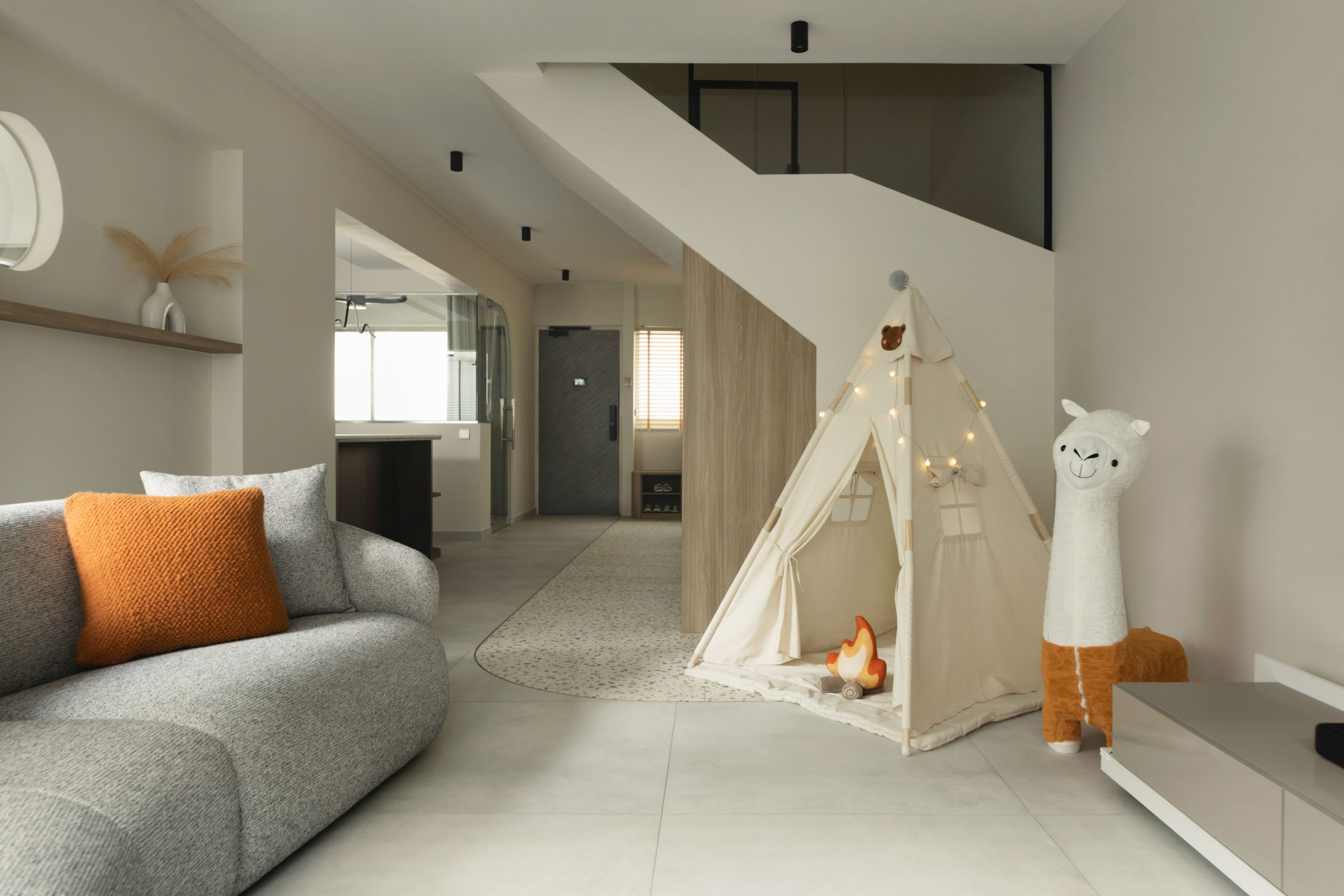
The interior design trends of 2024 reflected a harmonious blend of sustainability, individuality, and functionality. Biophilic design is also taking center stage, emphasizing the connection between indoor spaces and the natural world through greenery, organic textures, and earthy tones. Meanwhile, maximalism is making a comeback for those who love vibrant colours, layered patterns, and a touch of drama. Key trends like organic shapes, warm neutrals, and retro-inspired aesthetics offered timeless yet contemporary design solutions. Check out these stunning homes and get some inspiration for your next renovation journey!
Biophilic Design

Biophilic design continues to evolve in 2024, focusing on deeper integration of nature into urban living spaces. It wasn’t just about adding a few houseplants but creating environments that mimic natural ecosystems. This included vertical gardens and built-in planters, which brought greenery. As seen in this tranquil abode, a blend of natural elements provides a sense of calm and wellbeing that brings the outdoors in. Materials like reclaimed wood, rattan, and soft fabrics were paired with earthy colours to enhance the feeling of being grounded. The designer prioritized daylight, using large windows to blur the line between indoors and outdoors. Ultimately, this trend reflected a desire for tranquility and mindfulness in increasingly urbanized environments.
Bold Expressions

This design style is all about layering colours, patterns, and textures to create spaces bursting with personality and charm. Walls become canvases for self-expression, with homeowners opting for statement features like artworks and wall paint or wallpaper designs. Additionally, you can also consider bold and unconventional colour palettes, such as jewel tones (emerald, sapphire, and ruby) mixed with rich gold or brass accents, which brings a much more dramatic effect.
Eclectic décor is a hallmark of maximalism, blending furniture and accessories from different eras and styles to craft a curated, one-of-a-kind look. Think vintage armchairs paired with contemporary coffee tables, or traditional rugs layered with modern geometric patterns. Textiles play a vital role, with vibrant throw pillows, patterned drapery, and rich upholstery in velvet, silk, and jacquard fabrics adding visual interest and tactile appeal.
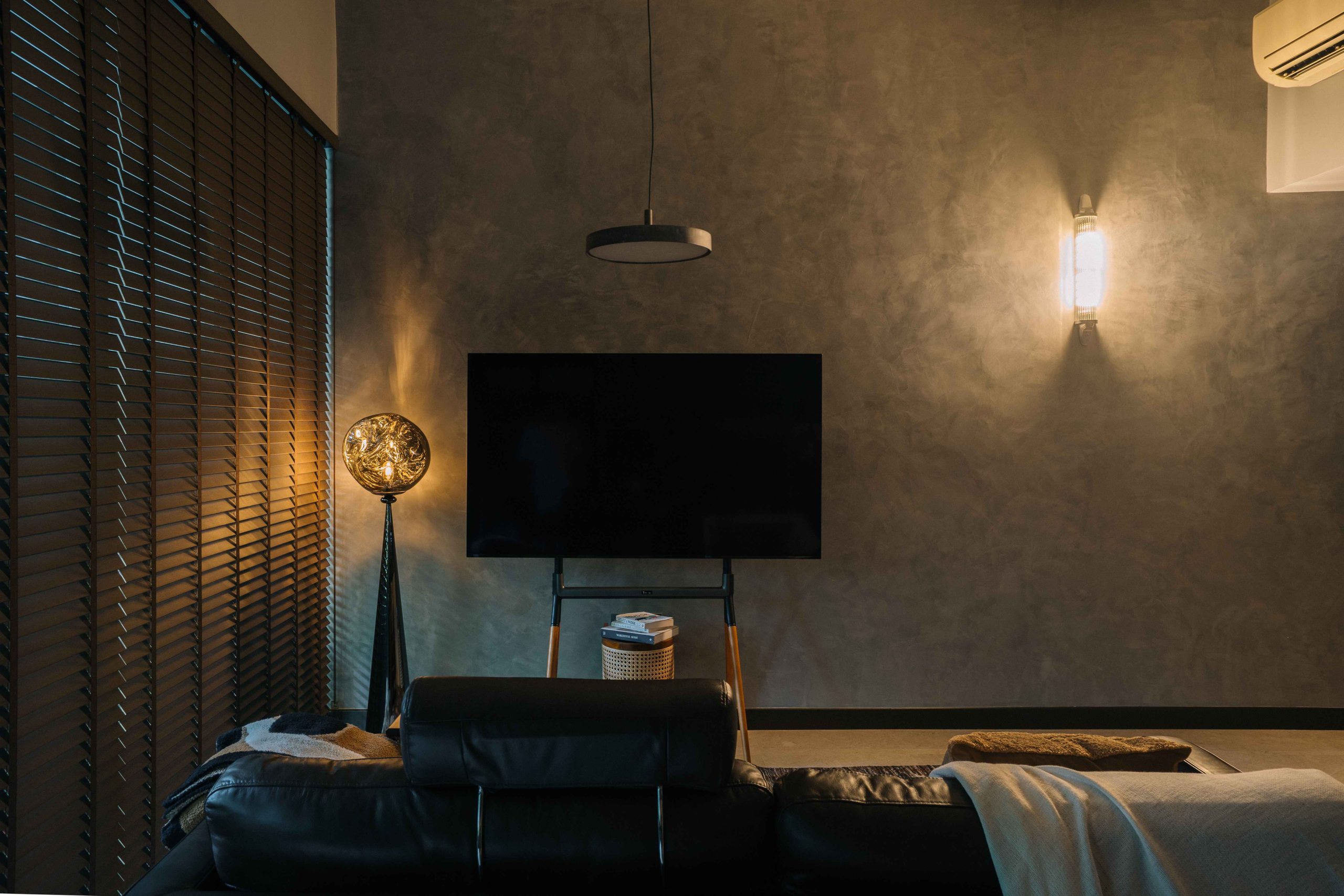
In this Industrial Luxury home interior, nothing was left understated—lighting fixtures and textured wall paint, for example, became the focal points in the inerior. Curate your accessories with books, vases, sculptures, and travel memorabilia on open shelves to tell a story. The key is to embrace controlled chaos, ensuring the space feel personalised without becoming overwhelming.
Organic Shapes
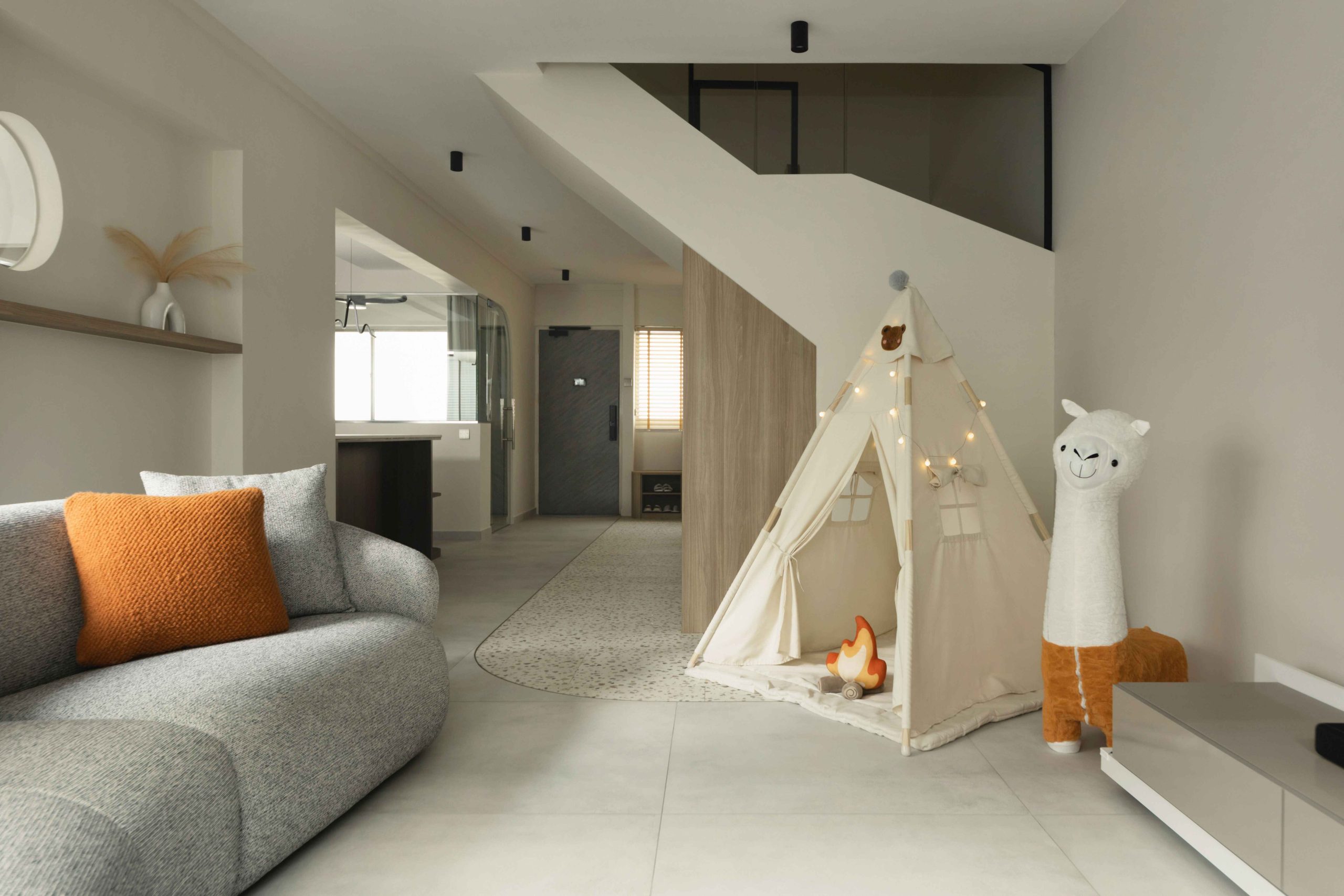
Organic shapes reflect the unpredictability of nature, with furniture, décor, and architectural elements designed to mimic natural forms. Sofas with rounded edges, kidney-shaped coffee tables, and oval mirrors were among the most popular pieces in this style. These elements often become focal points, breaking up the rigidity of rectangular rooms and creating a more relaxed and inviting atmosphere.
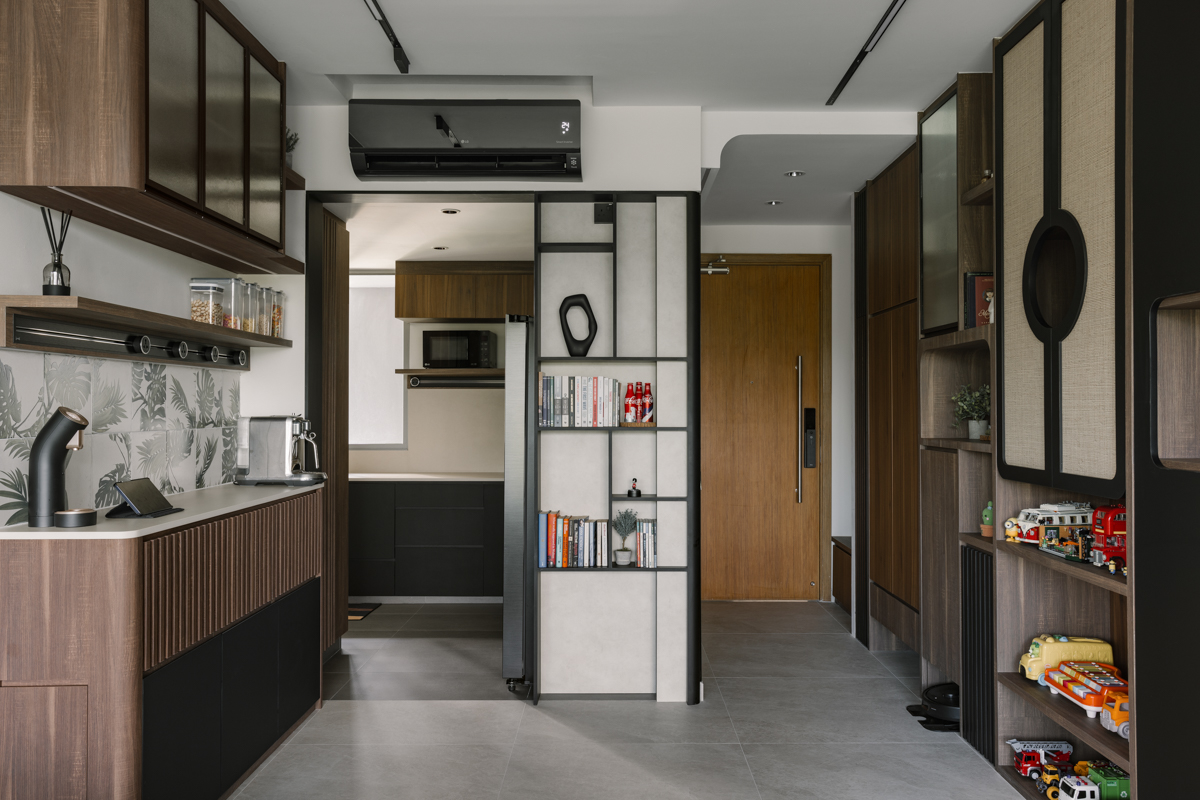
In this Organic Modern home, curved shapes were often paired with natural materials to amplify their connection to the earth. Wood and rattan were commonly used in this home, and were seamlessly integrating into the overall design. The absence of sharp edges made furniture safer and more child-friendly, especially in spaces where the child uses most. On an emotional level, curves are psychologically soothing, fostering feelings of comfort and relaxation. This makes organic shapes particularly well-suited for areas like living rooms, bedrooms, and home offices, where a sense of ease is important.
Minimalism
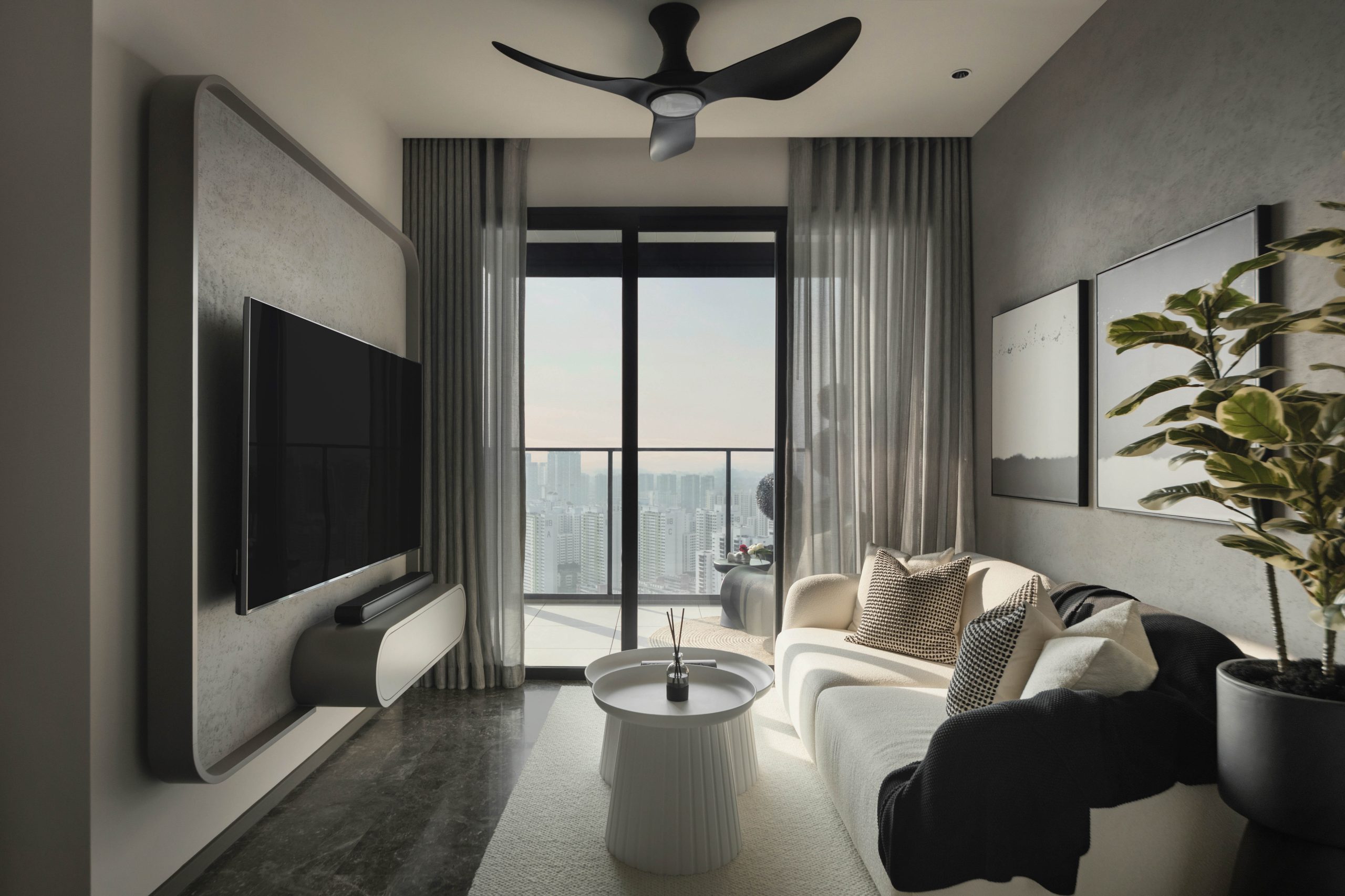
Minimalist spaces prioritise open layouts with a clear flow, allowing natural light to permeate and enhance the sense of spaciousness. Furniture pieces were carefully curated, with each piece serving a purpose. Low-profile sofas, sleek tables, and built-in storage solutions were common, ensuring functionality without visual noise. Walls were typically kept neutral—white, beige, or light gray—serving as a clean backdrop for carefully chosen statement pieces like a single artwork or a sculptural lamp.
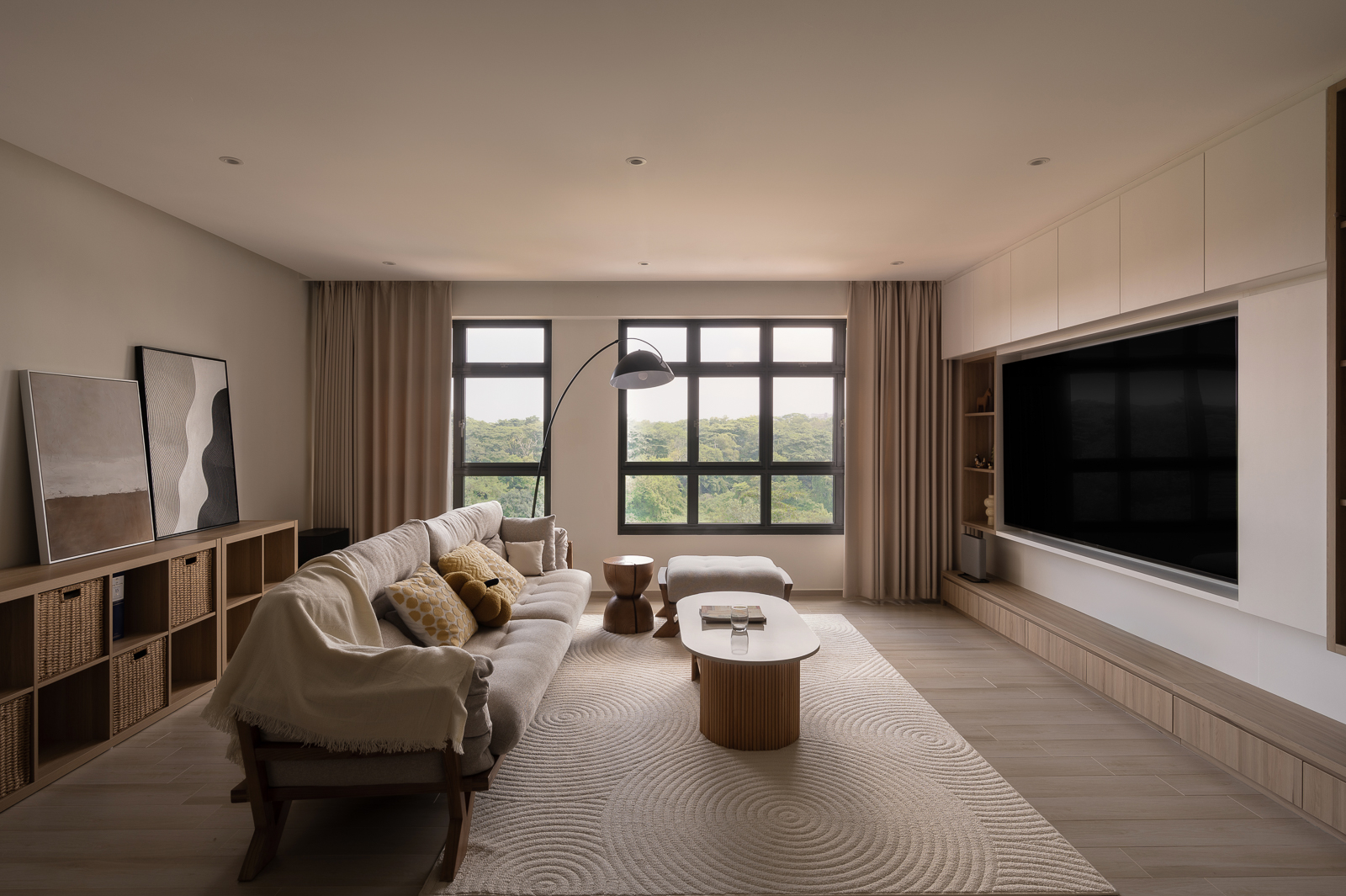
This particular style remained a cornerstone of interior design in 2024, celebrated for its focus on simplicity, functionality, and clarity. Rooted in the principle of “less is more,” minimalist interiors emphasized the idea of decluttering both physical spaces and the mind, creating environments that fostered calm and intentional living. The style goes beyond mere aesthetics to reflect a lifestyle choice centered on mindfulness and sustainability.
CONSULT OUR DESIGNER
-
16 December 2025 DESIGN INSPIRATIONPRE-RENOVATIONTIPS & GUIDES
Low-Maintenance Interior Design Ideas For Busy Singaporeans
-
4 December 2025 TIPS & GUIDES
HDB Interior Design Rules You Might Be Breaking Without Knowing (And How to Fix Them)
-
4 December 2025 TIPS & GUIDES
Selecting an Interior Designer for Luxury Interior Design
-
4 December 2025 TIPS & GUIDES
6 Essential Functional Considerations in Renovation Interior Design You Don’t Want to Overlook
-
4 December 2025 TIPS & GUIDES
Top 10 Ways to Personalise a Templated Condo Interior Design
-
11 November 2025 TIPS & GUIDES
Future-Proofing Your Home: Designing for the Years Ahead

